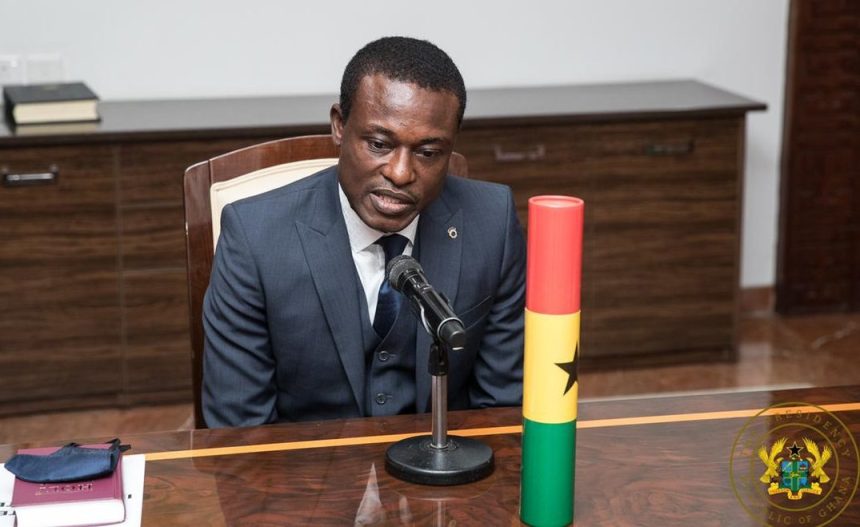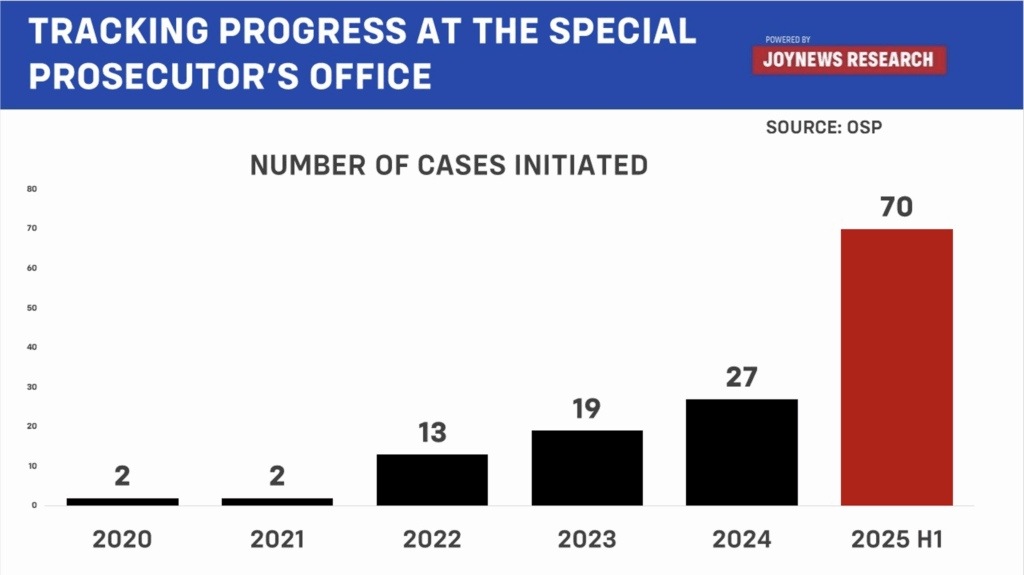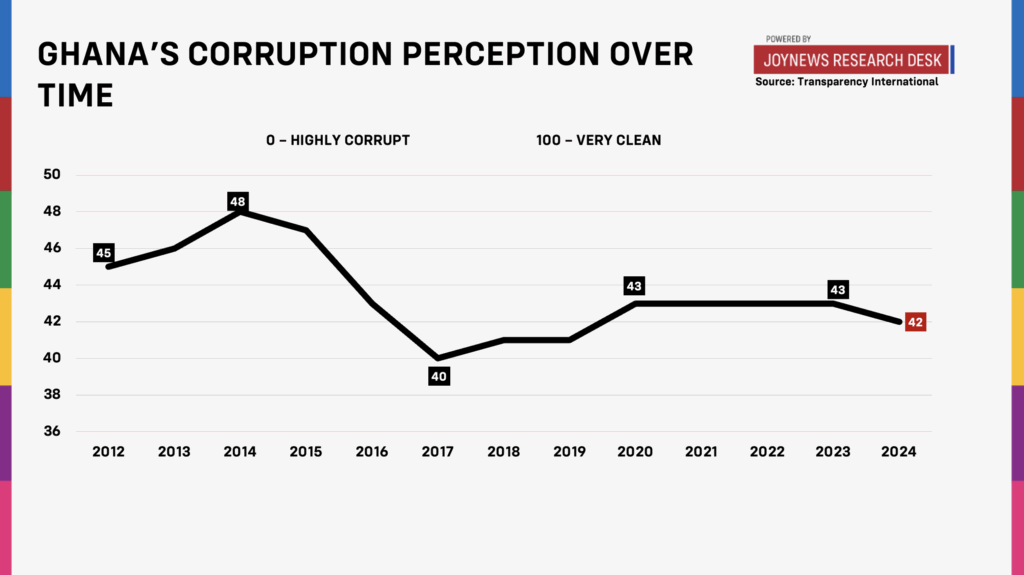The Office of the Special Prosecutor has secured its first successful convictions relating to cases it has been dealing with since the creation of the entity almost 8 years ago under the Special Prosecutor Act (959).
After many years of catching the angst and flak of the general public for not giving the country value for money after getting over GH¢1 billion in budgetary allocations since its inception, the Office has secured 7 convictions all by way of plea bargains.
The budgetary allocation for the entity for the current fiscal year is pegged at GH¢146 million to support its operational and administrative expenses.
While questions remain about the timing and consistency of disbursements in earlier years, the claim that funding shortfalls explain the lack of results has become harder to defend.
Six convictions involved payroll fraud uncovered in the Northern Region. The seventh relates to the trial of Charles Bissue, former secretary of the defunct Inter-Ministerial Committee on Illegal Mining. The second accused in that case has been convicted and is reportedly cooperating with prosecutors in the ongoing proceedings against Mr Bissue.
The OSP has been noticeably more active in the first half of 2025. It is currently investigating several high-profile cases, including former Finance Minister Ken Ofori-Atta, the controversial GRA–SML contract linked to former GRA Commissioner Rev Ammishaddai Owusu-Amoah, and the former NPA Chief Executive Dr Mustapha Abdul-Hamid.
The investigation into Charles Bissue is also ongoing.
These headline cases form part of a broader expansion. In the first half of 2025 alone, the OSP has opened 70 new investigations. This marks a sharp increase from previous years.
The office initiated only two cases each in 2020 and 2021. That figure rose to 13 in 2022, 19 in 2023, and 27 in 2024. The current surge brings the cumulative total to at least 133 cases since the OSP began operations.
The rise in enforcement activity comes at a time when Ghana’s Corruption Perceptions Index, measured by Transparency International, has shown little progress. After holding at a score of 43 for four years, Ghana fell to 42 in 2024.
The index runs from 0 to 100, with higher scores indicating lower perceived corruption. Ghana’s highest-ever score was 48 in 2014. The trend since then has been downward.
In recent times, despite the displeasure of public in terms of substantial convictions, particularly for politically exposed persons and government officials caught up in alleged mismanagement of state resources, the OSP made a modest gain of GH¢4 million in reparation to the state.
In totality, given the significant financial overlays to the Office in its line of work and with confirmed reports from the Public Accounts Committee and Auditor-General’s reports of corruption costing the state an average of GH¢3 billion yearly, more concrete convictions need to be secured, judging by feedback from the taxpayers.
The Office has proven to be adept at getting cases to logical legal conclusions in recent times, and as such, more steps must be taken to escalate the gains from just 7 plea bargains in close to eight years, primary data suggests.
Data source: JoyNews Research
Story by Sika Togoh | univers.ug.edu.gh







